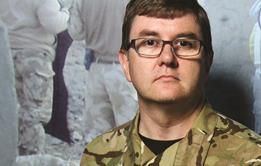Matthew Cooke says that it’s time to adopt a can-do attitude and challenge the attitudes, behaviours and cultures in the NHS as a whole, not just trauma care
The improved survival and outcomes for soldiers with critical injuries have been dramatic. The data has been subjected to close scrutiny and there is no doubt of the massive change. When presented the initial reaction of many is to find excuses as to why these changes cannot be achieved in civilian practice. Everyone agrees these are fit individuals, different from the older patients often encountered in the NHS. But conversation soon moves on to realise the changes the military have made could also impact this different population. There is no doubt NHS trauma care could learn from them.
Some of the changes in protocol are already being adopted: catastrophic haemorrhage now takes precedence over ABC. But it can still take too long to get blood products to the patient. How often is a patient delivered direct to an NHS operating theatre and how often is it a prolonged series of negotiations to deliver the patient to the correct place? However, the changes in process and structure are probably the easiest component to copy.
‘Some of the changes in protocol are already being adopted: catastrophic haemorrhage now takes precedence over ABC. But it can still take too long to get blood products to the patient’
This change was whole system. A phrase widely used in healthcare, but rarely are both our thinking and our actions truly reflecting this. Everyone from the injured soldier and his buddy through the medical process until arrival at rehabilitation was involved in the change. This coordinated accumulation of changes achieved success. One meeting of everyone, agree the need for change, agree the change, act on it and check if undertaken one week later.
Attitudes, behaviours and culture
What is clear from Colonel Hodgetts is that the change was brought about by a different set of ABCs – the attitudes, behaviours and culture. As he states “we changed our mindset” but this is not just about treatment. There is also the “can do” mindset that is apparent in this article, how else did they discover that most problems “can be closed down in three weeks”. This was supported by the feedback loops in their continuous improvement systems that involved everyone and “empowered clinicians” and no doubt an element of military discipline to enact the changes.
‘Why can’t we adopt these changes and this change process in the NHS, and not just for trauma care?’
Colonel Hodgetts’ assumption was that the military could not “achieve the same level of care as the NHS”. Now the tables have turned and we need the aspiration to provide the same level of care and the same continuous quality improvement as the military. Why can’t we adopt these changes and this change process in the NHS, and not just for trauma care? Like the military, we have a single common goal, to get the best outcome for the patient. The biggest barriers are the systems we have often created and some of the attitudes, behaviours and cultures that continue unchallenged. We can make it happen and I would issue a challenge to readers: next week, can you identify a problem, create a solution, empower staff to make the change and “close it down in three weeks” because you are sure that change will be sustained?
Matthew Cooke is professor of clinical systems design at Warwick Medical School and associate medical director and head of clinical systems design at Heart of England Foundation Trust
Topics
Fight for change: healthcare lessons from the battlefield

Focus on evidence based data
- 1
- 2
 Currently
reading
Currently
reading
We need to follow the military drill































No comments yet